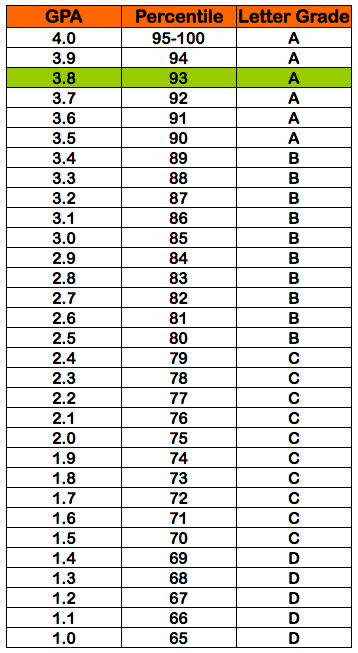Jessica Parker Kennedy Nude Photos: Comprehensive Facts And Insights
In the digital age, the intersection of celebrity culture and online privacy has become a contentious battleground. The alleged circulation of nude photos of Jessica Parker Kennedy, a talented actress known for her roles in popular television series, has sparked widespread discussions about privacy, consent, and the ethical responsibilities of media consumption. This article delves into the facts surrounding the issue, the broader implications for public figures, and the societal norms that perpetuate such controversies.
The Allegations and Immediate Response
Jessica Parker Kennedy, recognized for her performances in shows like The Flash and Black Sails, found herself at the center of a scandal when unverified claims of nude photos surfaced online. As with many such incidents, the initial spread was rapid, fueled by social media and gossip forums. Kennedy’s representatives issued a statement emphasizing the importance of respecting her privacy and condemning the unauthorized distribution of any personal content.
Expert Insight: In cases of alleged privacy breaches, the initial response from public figures or their teams often sets the tone for public perception. A swift, clear condemnation of unauthorized content distribution can mitigate damage and reinforce the importance of consent.
The Role of Digital Privacy in the Celebrity Sphere
Celebrities, by virtue of their public personas, often face heightened scrutiny and intrusion into their personal lives. The digital era has exacerbated this phenomenon, with hacking, phishing, and deepfake technologies becoming tools for exploitation. Jessica Parker Kennedy’s situation highlights the vulnerability of public figures to such attacks, which can have long-lasting emotional and professional consequences.
Pros and Cons of Celebrity Privacy in the Digital Age
- Pro: Increased awareness of privacy rights has led to stronger legal frameworks protecting individuals from unauthorized content distribution.
- Con: The insatiable demand for celebrity gossip often overrides ethical considerations, perpetuating harmful practices.
Legal and Ethical Considerations
The distribution of private, intimate content without consent is not only unethical but also illegal in many jurisdictions. Laws such as the “revenge porn” statutes in the United States and similar legislation worldwide aim to protect individuals from such violations. However, enforcement remains challenging, particularly when content spreads across international platforms.
"The unauthorized sharing of private images is a violation of trust and a breach of fundamental human rights. It’s crucial for society to condemn such actions and support victims in their pursuit of justice." – Legal Expert on Digital Privacy
Societal Norms and Media Consumption
The public’s consumption of celebrity-related content plays a significant role in perpetuating privacy violations. The demand for sensationalized stories often incentivizes the creation and dissemination of unauthorized material. Jessica Parker Kennedy’s case serves as a reminder of the need for media literacy and ethical consumption practices.
Key Takeaway: By refusing to engage with unverified or invasive content, individuals can contribute to a culture that prioritizes respect and consent over sensationalism.
The Impact on Mental Health and Career
For celebrities like Jessica Parker Kennedy, the aftermath of such incidents can be devastating. The emotional toll of having one’s privacy invaded is compounded by public scrutiny and potential damage to one’s career. Studies have shown that victims of non-consensual content distribution often experience anxiety, depression, and long-term psychological trauma.
Steps to Support Victims of Privacy Violations
- Report: Flag inappropriate content on platforms to expedite its removal.
- Support: Offer emotional and professional backing to affected individuals.
- Advocate: Promote awareness and stricter enforcement of privacy laws.
The Broader Cultural Context
The phenomenon of celebrity nude photo scandals is symptomatic of deeper cultural issues, including the objectification of women and the commodification of privacy. Jessica Parker Kennedy, as a female actress, faces gendered challenges that male counterparts often do not. Addressing these disparities requires a collective reevaluation of societal norms and media representation.
| Issue | Impact | Solution |
|---|---|---|
| Objectification of Women | Perpetuates harmful stereotypes and normalizes privacy violations | Promote gender equality and respectful media portrayal |
| Commodification of Privacy | Encourages invasive practices for profit or attention | Strengthen legal protections and ethical media standards |
Moving Forward: A Call for Change
The alleged nude photo scandal involving Jessica Parker Kennedy underscores the urgent need for systemic change. From stronger legal protections to a shift in societal attitudes, every stakeholder—from media outlets to individual consumers—has a role to play in fostering a culture of respect and consent.
Future Implications: As technology continues to evolve, so too must our approaches to privacy and ethics. Proactive measures, such as advanced cybersecurity and public education campaigns, can help mitigate future incidents and protect individuals from harm.
What legal actions can be taken against those who distribute unauthorized nude photos?
+Individuals who distribute unauthorized nude photos can face charges under laws related to revenge porn, harassment, and privacy violations. Penalties vary by jurisdiction but often include fines, imprisonment, and civil lawsuits for damages.
How can fans support celebrities facing privacy violations?
+Fans can support affected celebrities by refusing to engage with or share unverified content, reporting inappropriate material, and advocating for stronger privacy protections. Emotional support and positive messaging also play a crucial role.
What role do social media platforms play in preventing privacy violations?
+Social media platforms can implement stricter content moderation policies, advanced detection algorithms, and user education campaigns to prevent the spread of unauthorized material. They also have a responsibility to respond swiftly to reports of privacy violations.
How can celebrities protect themselves from privacy breaches?
+Celebrities can protect themselves by using secure communication tools, regularly updating their cybersecurity measures, and being cautious about sharing personal content. Legal agreements and proactive monitoring of online activity are also essential.
In conclusion, the case of Jessica Parker Kennedy serves as a stark reminder of the challenges faced by public figures in the digital age. By addressing the legal, ethical, and societal dimensions of privacy violations, we can work toward a more respectful and just media landscape. The journey toward change begins with awareness, empathy, and collective action.


